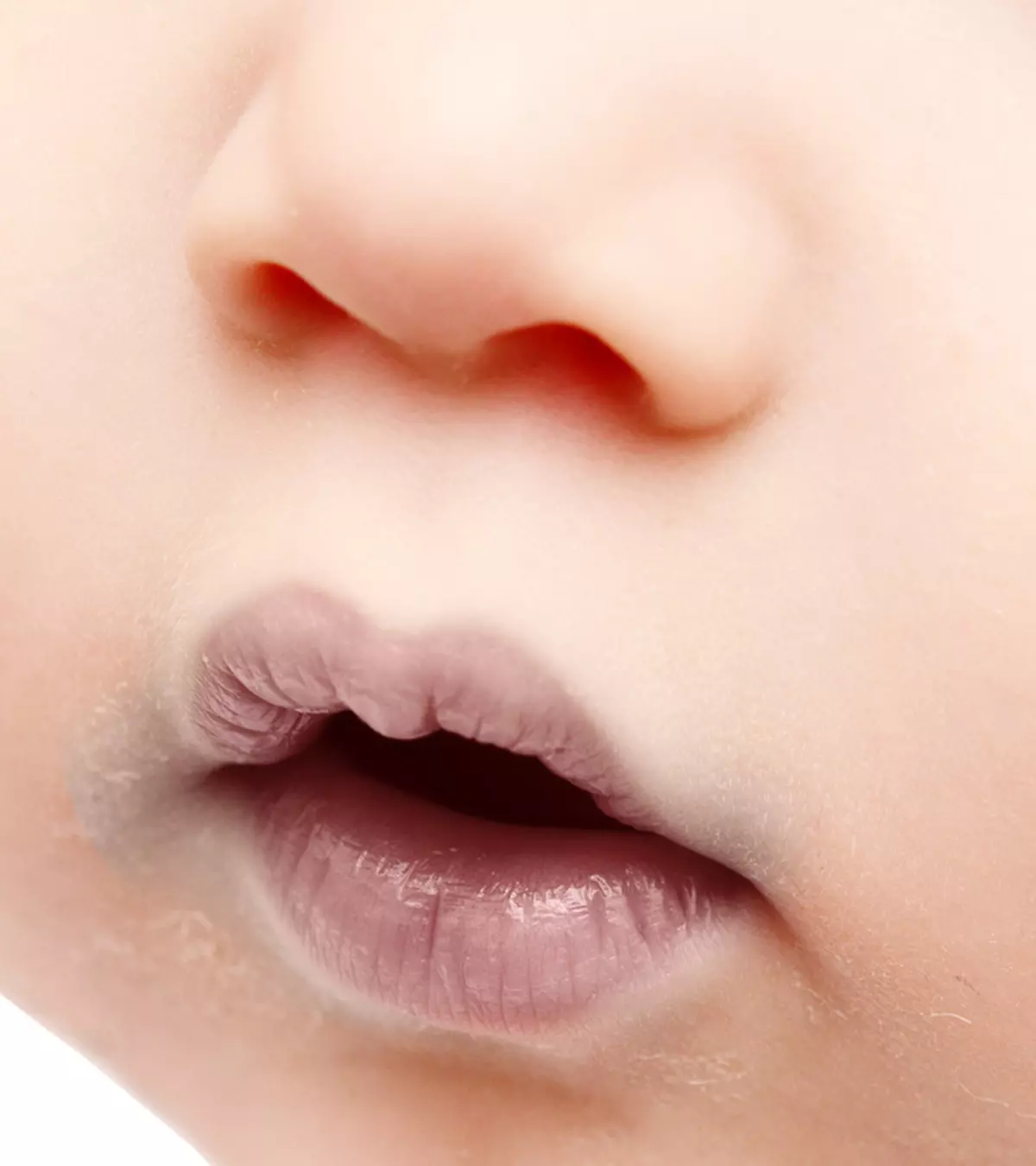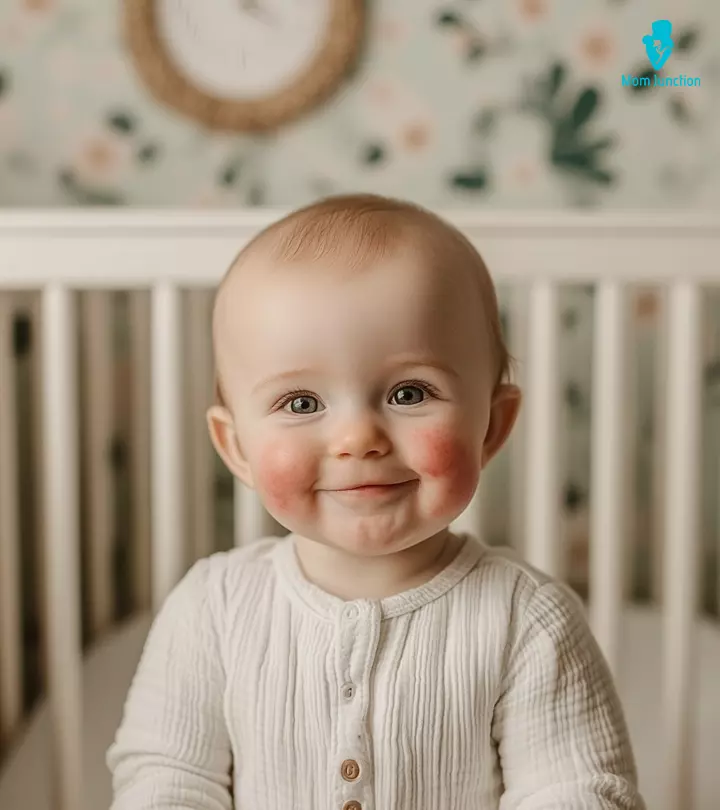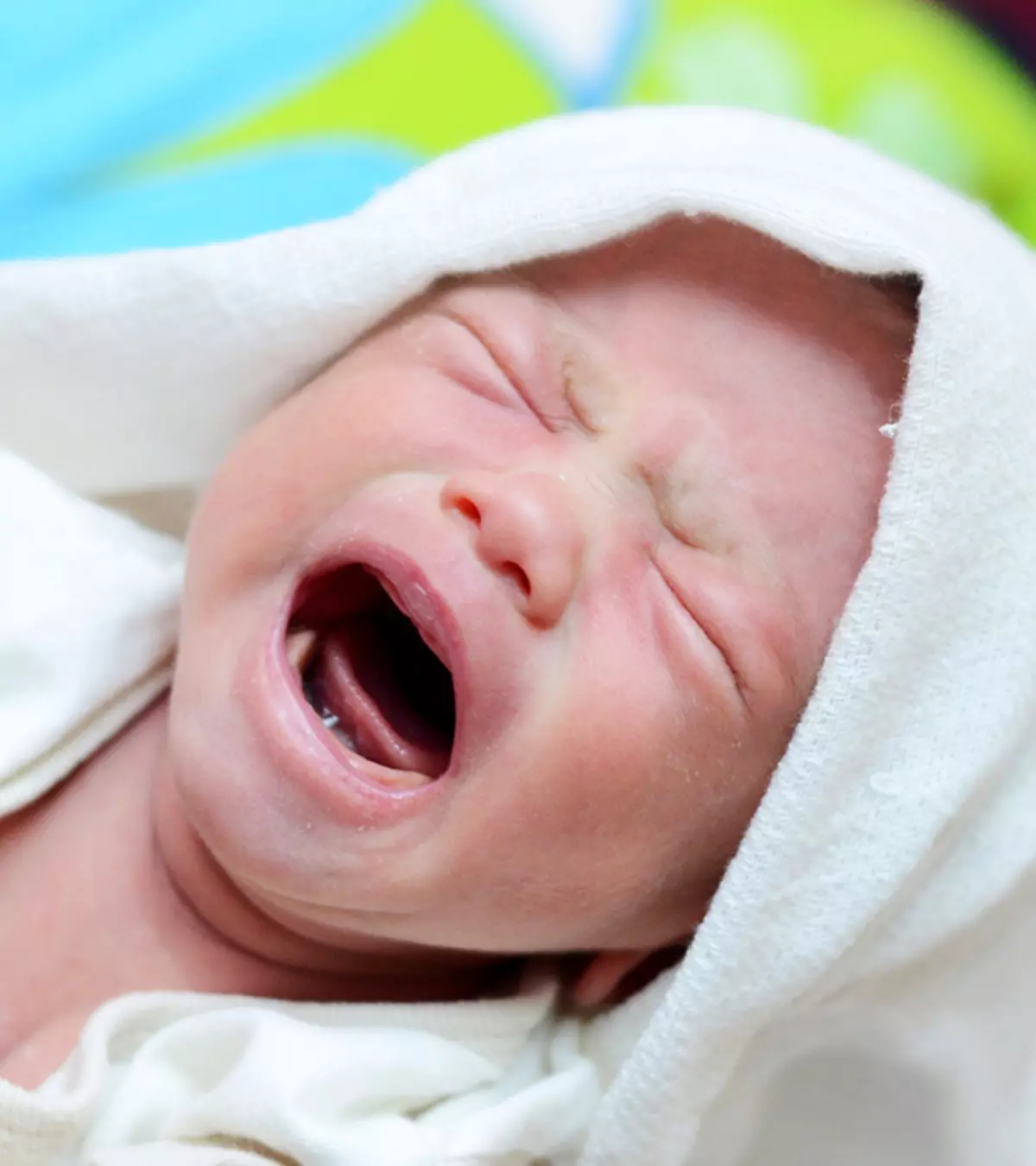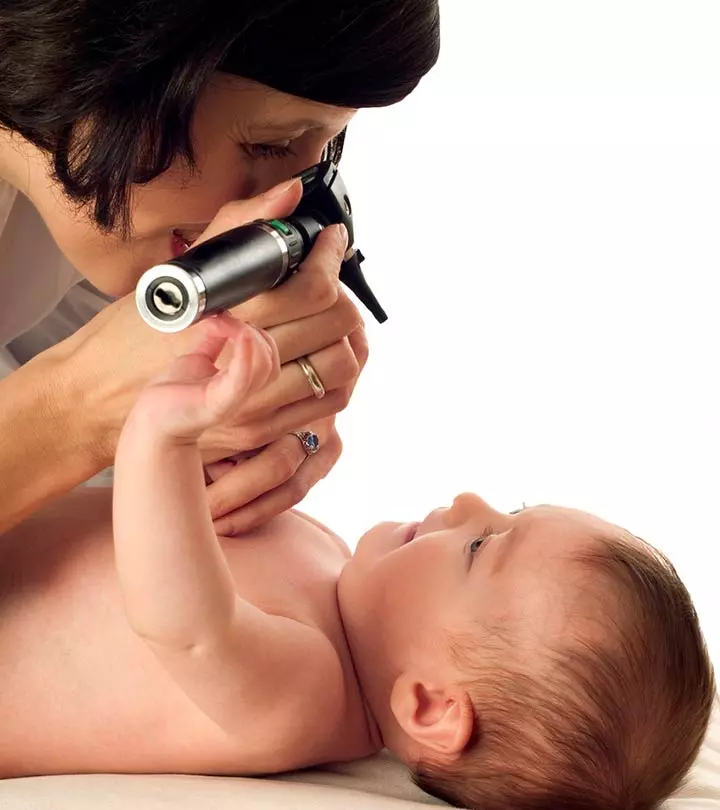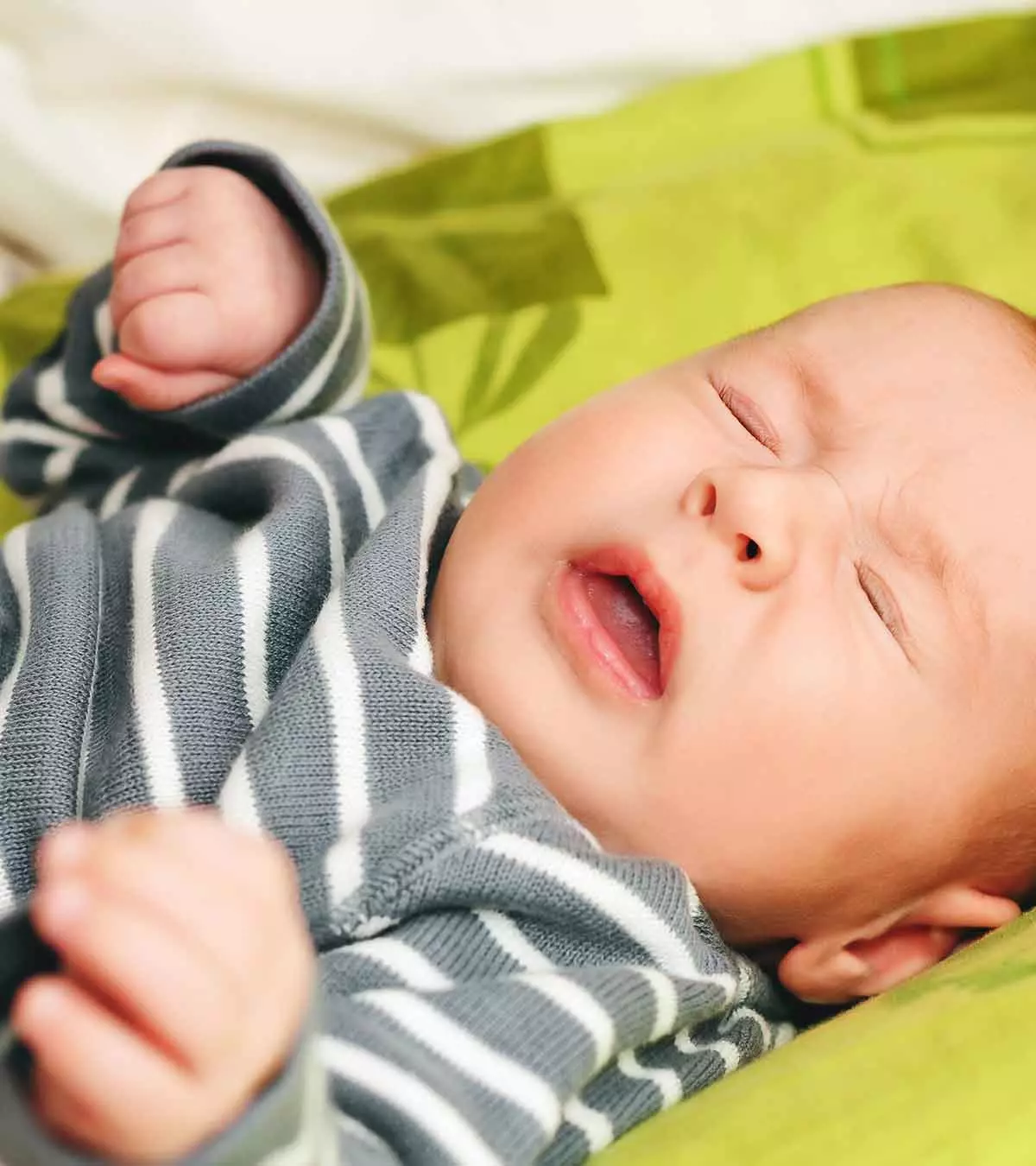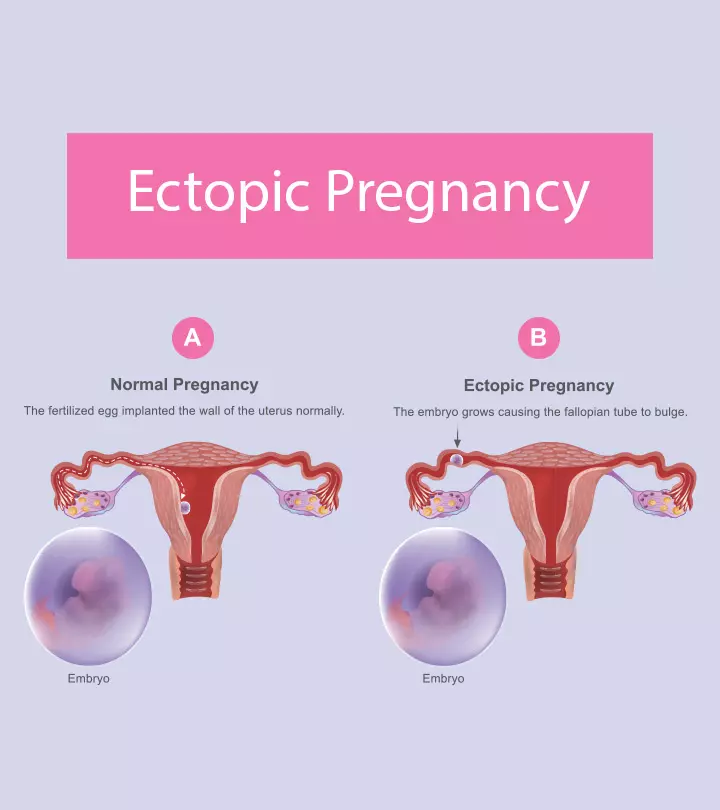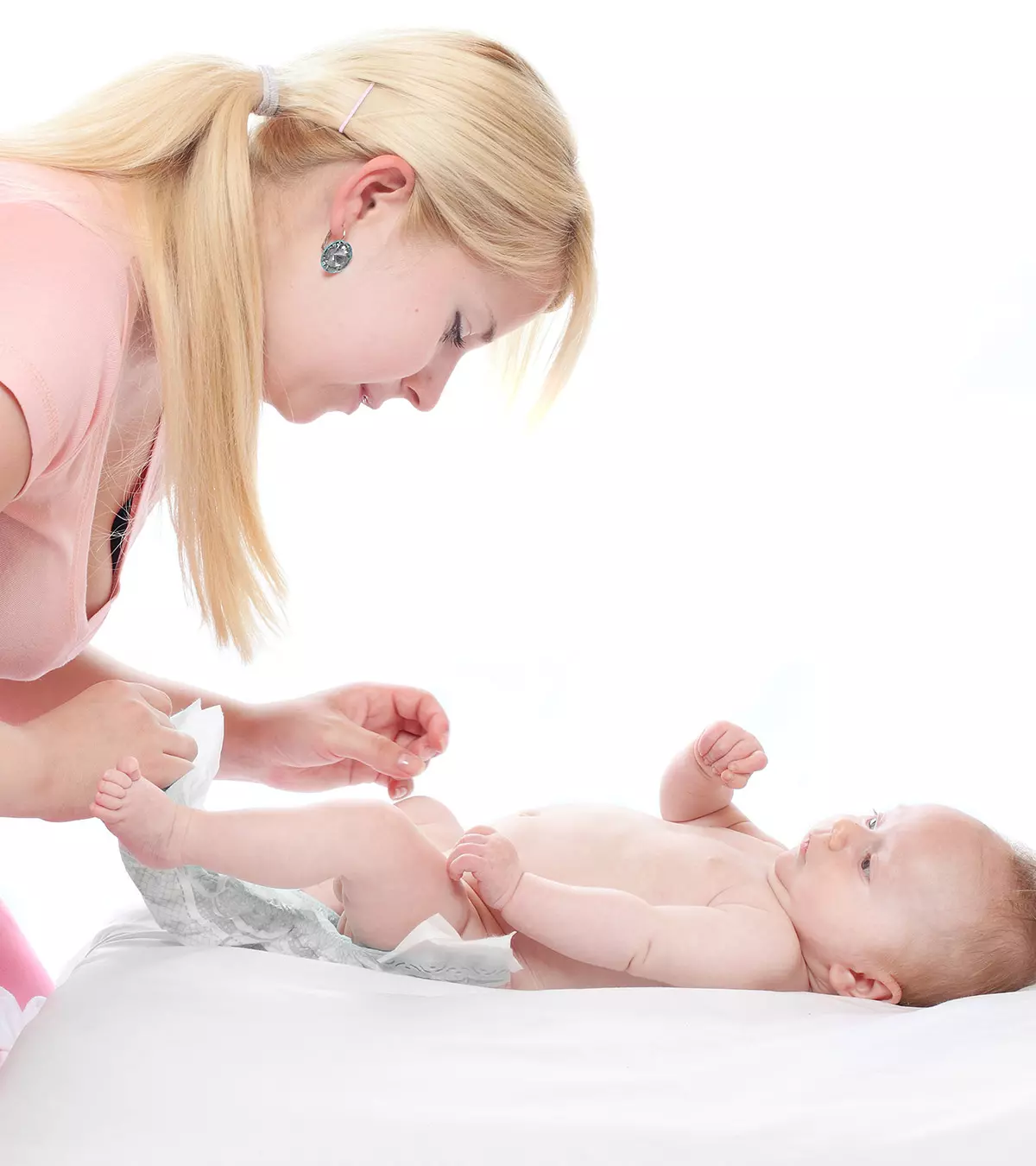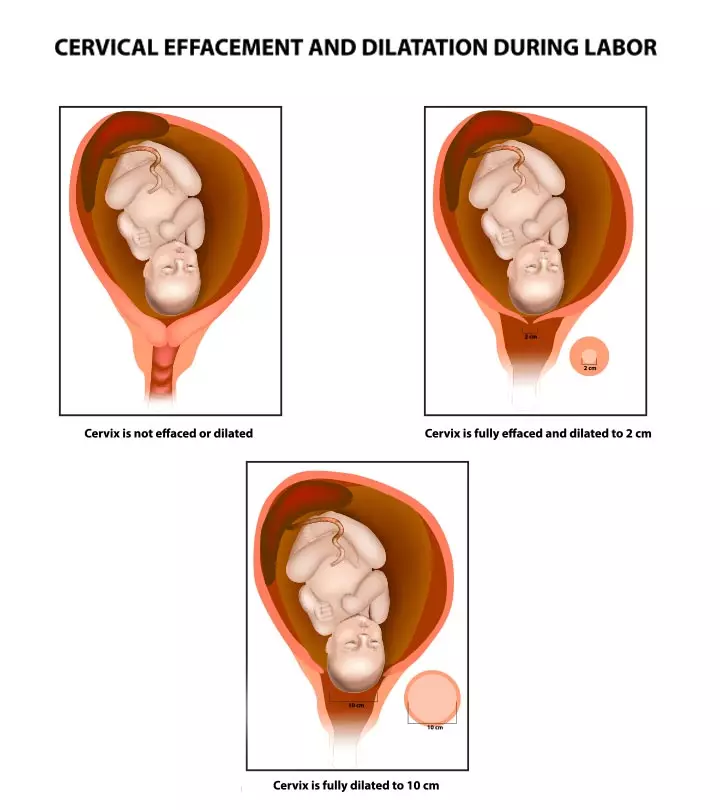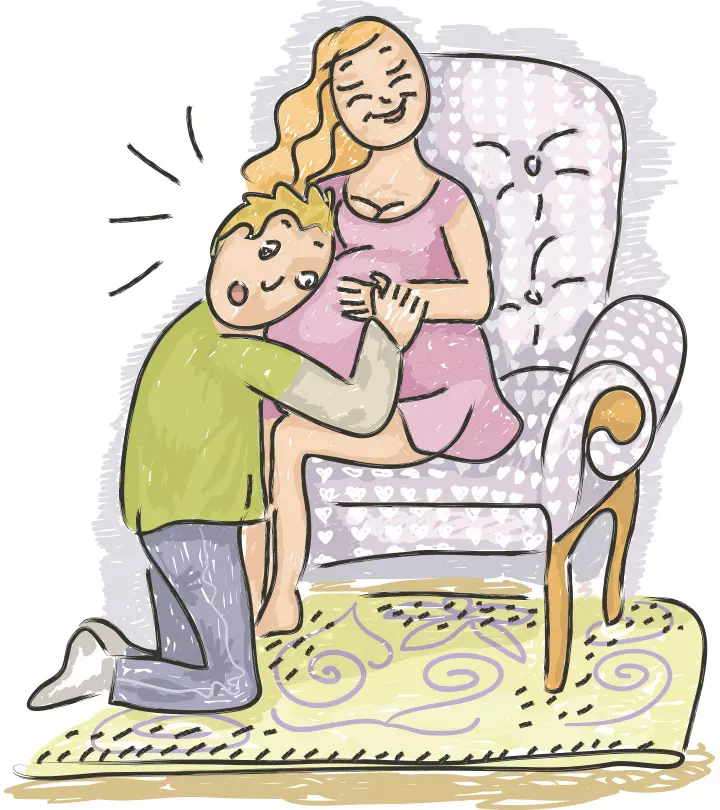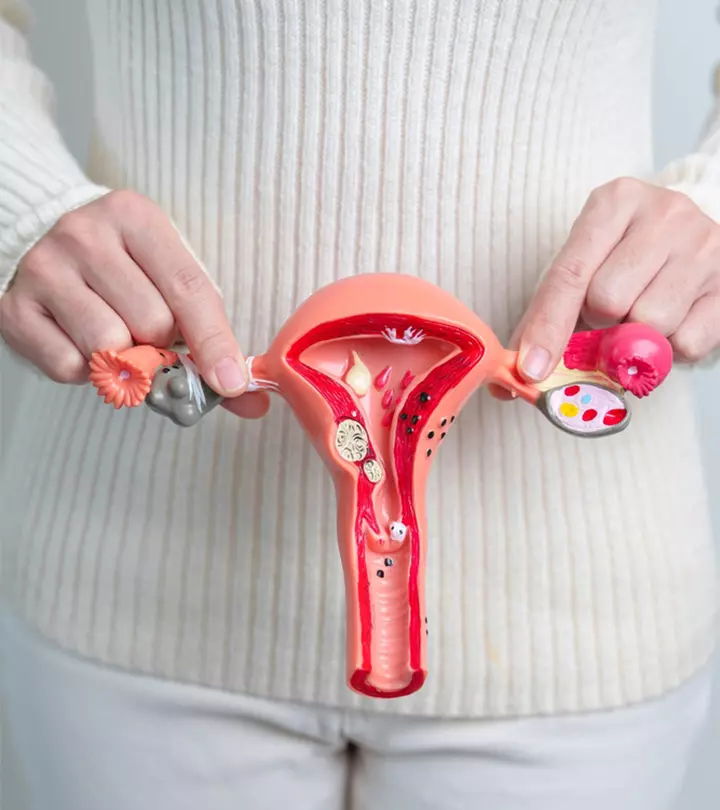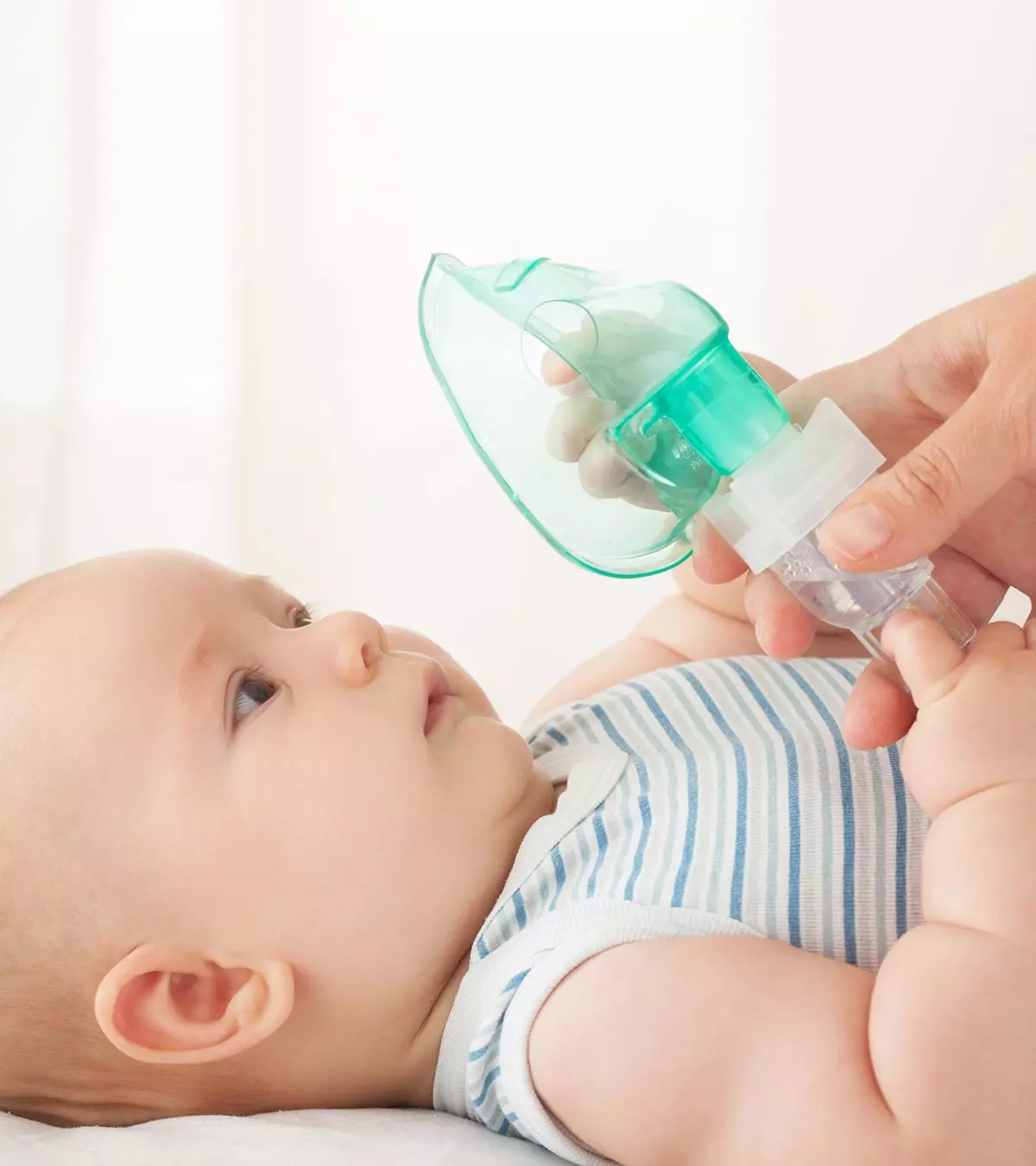
Image: ShutterStock
Pneumonia is an infectious lung disease. It can affect people of all age groups. Pneumonia in babies can be fatal. The disease attacks the respiratory system, mainly the lungs, thereby causing breathing difficulties and may also cause other complications such as a rapid decline in the baby’s growth and development. Pneumonia may cause long-lasting damage, and untreated pneumonia may cause serious complications. Read this post to know more about the causes, risks, symptoms, diagnosis, treatment options, and prevention of pneumonia in infants.

Key Pointers
- Pneumonia causes swelling in the air sacs of the lungs, and it can affect babies adversely.
- Bacteria or viruses may cause this infectious disease, and it spreads through contact with an infected person.
- Babies with weak immune systems, chronic lung conditions, exposure to pollution, and smoke are more vulnerable, especially those under two years old.
- Common symptoms of pneumonia in babies include laborious breathing, fatigue, decreased appetite, persistent wet cough, and cyanosis.
- The treatment for pneumonia in babies involves antibiotics, managing fever, and getting plenty of rest.
What Is Pneumonia?
Pneumonia is an acute lung infection characterized by the inflammation of the air sacs, called alveoli, in the lungs. An alveolus is where gaseous exchange occurs: oxygen from inhaled air transfers to the blood and carbon dioxide from the blood transfers to the air. In pneumonia, the alveoli become inflamed and fill with fluid, which impairs the lung’s ability to exchange gasses.
There are two types of pneumonia depending on the part of the lung affected (1).
- Lobar pneumonia: It affects a single large lobe of the lung, and has a continuous presence across one section of lung.
- Bronchial pneumonia: It is also called bronchopneumonia. This infection causes a discontinuous spread of the disease in small pockets across the lungs.
In the early stages of any chest infection/pneumonia, the child will have only fever and maybe some cough and may not actually appear to be very unwell. However, if left untreated the condition will worsen and so even trivial respiratory symptoms in a child should not be neglected.
What Causes Pneumonia In Babies?
There are three primary causes of pneumonia viz. bacteria, virus, and fungi (2). The most likely pathogens to cause pneumonia from each class are mentioned next (3):
1. Bacteria causing pneumonia:

- Streptococcus pneumoniae
- Mycoplasma pneumonia
- Group A & Group B streptococcus
- Staphylococcus aureus
- Pneumococcus
2. Viral pneumonia causes:
- Respiratory syncytial virus (RSV)iA common contagious virus that infects the respiratory tract, causing symptoms such as runny nose, sore throat, and cough
- Influenza
- RhinovirusiA virus infecting the respiratory tract, a leading causative agent of the common cold in humans
- ParainfluenzaiViruses that cause upper and lower respiratory illnesses commonly in people with a weakened immune system
- AdenovirusiViral infectious agent that affects several regions of the human body, such as the respiratory tract, eyes, intestines, and urinary tract
Viral pneumonia is the most common type that affects children, with RSV being the most common culprit causing the infection (4).
How Do Babies Catch Pneumonia?
Understanding how pneumonia spreads can help parents take preventive measures to protect their babies. The following are the most common settings for a baby to catch the pneumonia-causing pathogen (5):
- Community-acquired pneumonia is the most common in babies. The baby picks the pathogen by breathing the tiny droplets of mucus or saliva expelled by an infected person sneezing, coughing, or spitting. Since it spreads from person to person, it is called community-acquired pneumonia.
- Hospital-acquired pneumonia is when an unwell baby catches the pathogen during a visit to or stay in the hospital. Hospital-acquired pneumonia tends to be the most dangerous since the body is already weak and the pathogens in hospitals tend to be more resistant to pharmaceutical drugs.

- Aspiration Pneumonia occurs when the baby inhales food, liquid, or vomit from their mouth. It causes the food item or the vomit to lodge inside the lungs and become infected. Such a form of pneumonia is likely to occur when the baby has a problem with the gag reflex and is unable to cough out lodged food and liquids.
While all babies are vulnerable to infections, some may be more susceptible to pneumonia than others.
What Are The Risk Factors Of A Baby Getting Pneumonia?
Some factors and situations exacerbate a baby’s chances of contracting a pneumonia-causing pathogen (6) (7):
- Children less than two years old are more prone to pneumonia infections due to their developing immune system, which isn’t strong enough to fight all pathogens.
- Babies exposed to second-hand smoke and pollution can be at higher risk due to damage to the lungs. Children below the age of one year are most prone to damage to the lungs caused by smoke.
- Children who have an innately weak immune system, due to HIV-AIDS or cancer treatment are more prone to infection.
- Acute chronic lung problems like cystic fibrosisiA genetic disorder that causes severe damage to multiple organs, including the respiratory and digestive tract and asthma impact lung health and leave it open to infection.
- With an existing lung infection, a baby’s immune system is already burdened, which causes opportunistic pathogens to cause pneumonia.
- Certain medical conditions such as a gag-reflex or trouble coughing and diseases like measles also make the baby susceptible to catching pneumonia. Living in a crowded environment also makes a baby prone to pneumonia.
How Common Is Pneumonia In Babies?
According to UNICEF, pneumonia is “the leading infectious cause of death among children under five” (5). Pneumonia accounts for 14% of deaths among children below the age of five years (7). Almost half of the childhood pneumonia deaths occur due to air pollution, which includes indoor air pollution (5).
 Did you know?
Did you know?What Are The Symptoms Of Pneumonia In Babies?

A baby with pneumonia will display the following symptoms (4) (8):
- A persistent wet cough.
- Labored breathing or trouble with respiration are common. The fast breathing is visible through the rapid movement of the ribs, contraction of abdominal muscles, and flaring of the nostrils.
- The laborious breathing or the baby gasping for air can cause exertion, pain in the chest, and wheezing.
- In severe cases, the baby will develop cyanosis, which is a bluish tint to the lips and nails due to low oxygen levels in the blood.
- Fatigue, decrease in appetite, general lethargy and drowsiness.
- Abdominal pain
- Vomiting or diarrhea
Pneumonia symptoms worsen as the pathogen invades the lungs more. Therefore, take your baby to the doctor as soon as you suspect any signs of pneumonia.
 Be watchful
Be watchfulHow Is Pneumonia In Babies Diagnosed?
Here is how a doctor finds out if the baby has pneumonia:(9)
- Assessment of symptoms: The doctor will ask you about the extent of the baby’s symptoms and past medical history, such as the presence of an underlying medical condition, and about the baby’s living conditions to know if the baby is exposed to smoke.
- Physical exam: It involves listening to the infant’s breathing using a stethoscope. The doctor may even perform a pulse oximetry test. A clip-like instrument called pulse oximeter is attached to the baby’s finger to check the levels of oxygen in the blood.
- Chest X-ray
- Mucus or sputum test: Doctor collects a small sample of the baby’s mucus from the nose or sputum from the mouth for laboratory analysis. It determines the pathogen that could have caused pneumonia.
- Blood test: A complete blood count checks the number of white blood cells, which are heavily produced during an infection. A blood test also helps determine what pathogen is present in the bloodstream.
- Pulmonary function test: Your doctor may also suggest doing a pulmonary function test to determine how well your lungs are working.
How Is Pneumonia In Babies Treated?
The treatment depends on the type of pathogen that led to pneumonia (9):
- Antibiotics are used if the pneumonia is caused by a bacterial infection in babies. The length of the antibiotic course and mode of delivery depends on the extent of the infection. In severe cases, the baby may be admitted to the intensive care unit in the hospital and given the medicines intravenously. Bacterial pneumonia gets better within three days of starting medication, but you will have to complete the entire antibiotic course to prevent a relapse of the infection.
- Adequate rest and care: There is no specific medicine or treatment for viral pneumonia. However, humidification of room air and giving medication through a nebuliser (which is a machine which turns liquid medication into aerosoliExtremely tiny solid or liquid particles suspended in the air in the gaseous form for breathing ) often helps the baby with nasal congestion. Rest, fever control, and sufficient nourishment are vital to help the body fight the infection.
- Supportive treatment: Pneumonia takes a heavy toll on the body. To help the body regain its good health and fight infections better, the baby should get supportive care
- Other steps include improving oxygen levels in the blood, removal of mucus from the nose through suctioning and administering acetaminophen (paracetamol) for alleviating fever and body pain.
- Care at home also plays an essential role in ensuring that the baby recovers faster from the pneumonia infection.
How Can Parents Care For A Baby With Pneumonia?

Here is what you can do at home when your baby has pneumonia (8):
- Give plenty of fluids: Babies with pneumonia will have trouble eating due to loss of appetite and lethargy. So switch to a liquid diet that is nourishing and keeps the baby hydrated.
- Use a cool-mist humidifier: Cool-mist humidifiers pump water vapor into the air and make breathing easy. The American Academy of Pediatrics recommends the use of cool-mist humidifiers for infants with cold and flu symptoms (10). Do not use a hot-mist or steam humidifier since it can increase the risk of burns.
Prevention is always better than cure, and it is also easier when it comes to pneumonia in babies.
How To Prevent Pneumonia In Babies?
The following steps help keep pneumonia away from your baby:
- Immunization: Vaccinating your newborn plays a significant role in reducing the risk of pneumonia. Preventive vaccines include Haemophilus influenzae type b (Hib) vaccine, DTaP vaccine, Pneumococcal pneumonia vaccine, and Influenza (flu) vaccine (8). The introduction of pneumococcal conjugate vaccine (PCV) in numerous countries has substantially reduced severe pneumococcal disease and pneumonia cases, states (11). By the end of 2025, PCV had been implemented in the National Immunization Programs in 148 out of 194 WHO member states. Medical experts also recommend getting the measles vaccine since measles increases the risk of contracting pneumonia.
- Proper nourishment: Keeping your baby’s immune system healthy is vital for preventing pneumonia.
- The single most important factor to reduce the incidence of viral pneumonias is breastfeeding. Babies who are breastfed have very low risk of RSV infections. And the other important thing is for the parents to not smoke (7).
Research suggests that breastfed infants have significantly lower risk of developing pneumonia than infants who rely on formula as their primary source of nourishment (12). Breastfeeding also protects against asthma, which increases the risk of pneumonia. So it is good to continue breastfeeding for a while, even when your baby switches to solids.
- Maintain good hygiene: Babies often catch pathogens from infected family members. Unwell members in the family must maintain distance from the baby. If you have a cold, then wear a mask when around the baby and while breastfeeding. Wash your hands when handling the baby and their things. Also, ask the doctor to prescribe medicines that are compatible with breastfeeding.
Frequently Asked Questions
1. Can babies get pneumonia from COVID-19?
Yes, babies infected with COVID-19 can develop pneumonia (13). Sore throat, excessive fatigue, and diarrhea are other symptoms that a baby may show (14).
2. Can pneumonia in babies be treated at home?
The baby’s doctor may recommend managing mild pneumonia at home with prescribed medication and home-care interventions. Pneumonia with severe symptoms could require hospitalization, and some babies may need oxygen for breathing (15). Ventilation support may be necessary when the baby’s breathing is severely compromised.
3. How long does pneumonia last in a baby?
Bacterial pneumonia may usually resolve in one to two weeks with antibiotics. Viral pneumonia doesn’t have any medicine and may take longer to cure (16).
4. Can a baby have pneumonia without fever?
Yes, babies can have pneumonia without fever. In such cases, there may be signs of other symptoms of the condition, such as gastrointestinal symptoms and cough in babies.
Pneumonia in babies can be life-threatening if left untreated. It may also impair their growth and development. The condition is more common in children below two years, exposed to second-hand smoke, or having weak immunity. However, keeping an eye on symptoms such as persistent cough, difficult breathing, and loss of appetite and seeing a doctor for a detailed diagnosis and treatment would help. According to the World Health Organization, you can prevent pneumonia in children with “simple interventions, low-cost, low-tech medication, and care”. Also, as babies grow older, they are less prone to pneumonia, as their immunity gets stronger.
Infographic: Pneumonia Complications In Babies And Young Children
Severe or inadequately treated pneumonia in babies and children can often lead to complications, which may have lasting effects. Therefore, do not ignore any signs of pneumonia to prevent it from worsening. Let’s look at the infographic below to learn about some potential complications of pneumonia in young children and babies.
Some thing wrong with infographic shortcode. please verify shortcode syntax
If your child is coughing and struggling to breathe, this video will help you learn about the signs of pneumonia and about the possible treatments.
References
- Pneumonia in Children.
https://www.chop.edu/conditions-diseases/pneumonia-children - How are different types of pneumonia classified?
https://www.ncbi.nlm.nih.gov/books/NBK525768/ - Young Gon Son et al.; (2017); Pneumonitis and pneumonia after aspiration.
https://www.ncbi.nlm.nih.gov/pmc/articles/PMC5564131/ - Pneumonia in Children.
https://www.urmc.rochester.edu/encyclopedia/content.aspx?contenttypeid=90&contentid=p02958 - Pneumonia.
https://data.unicef.org/topic/child-health/pneumonia/ - Pneumonia in Children.
https://www.healthychildren.org/English/health-issues/conditions/chest-lungs/Pages/Pneumonia.aspx - Pneumonia.
https://www.who.int/news-room/fact-sheets/detail/pneumonia - Pneumonia in Children.
https://www.rush.edu/kids/conditions/pneumonia-children - Pneumonia in Children.
https://www.cedars-sinai.org/health-library/diseases-and-conditions—pediatrics/p/pneumonia-in-children.html - How to Care for Your Child’s Cold.
https://www.healthychildren.org/English/health-issues/conditions/flu/Pages/caring-for-Your-childs-cold-or-flu.aspx - Pneumococcal conjugate vaccines in infants and children under 5 years of age: WHO position paper – February 2019.
https://cdn.who.int/media/docs/default-source/immunization/position_paper_documents/pneumococcus/who-pp-pcv-2019-references.pdf?sfvrsn=f76f353a_2 - Laura M Lamberti et al.; (2013); Breastfeeding for reducing the risk of pneumonia morbidity and mortality in children under two: a systematic literature review and meta-analysis.
https://bmcpublichealth.biomedcentral.com/articles/10.1186/1471-2458-13-S3-S18 - CMałgorzata Sobolewska-Pilarczyk et. al.; (2025); COVID-19 infections in infants.
https://idp.nature.com/authorize?response_type=cookie&client_id=grover&redirect_uri=https%3A%2F%2Fwww.nature.com%2Farticles%2Fs41598-022-11068-0 - COVID in Babies and Kids: Symptoms and Prevention.
https://www.hopkinsmedicine.org/health/conditions-and-diseases/coronavirus/coronavirus-in-babies-and-children - Pneumonia.
https://raisingchildren.net.au/guides/a-z-health-reference/pneumonia - Pneumonia
https://kidshealth.org/en/parents/pneumonia.html - Pneumonia in Children.
https://www.childrenscolorado.org/conditions-and-advice/conditions-and-symptoms/conditions/pneumonia/
Community Experiences
Join the conversation and become a part of our nurturing community! Share your stories, experiences, and insights to connect with fellow parents.
Read full bio of Dr. Anita Bakshi
Read full bio of Rohit Garoo
Read full bio of Dr. Ritika Shah
Read full bio of Vidya Tadapatri







